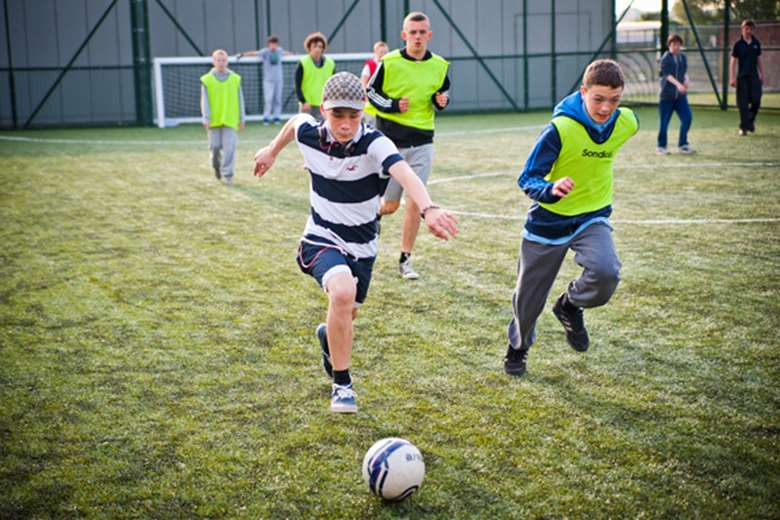Children need a level playing field, not over-zealous rules
Howard Williamson
Tuesday, October 11, 2016
While the English national team takes further strides in making itself a global laughing stock thanks to manager Sam Allardyce's media "entrapment", we should remember the constant rhetoric about the need to develop grassroots football.

I know Welsh grassroots soccer quite well, having coached a cohort of nice kids since they were six and we've had a lot of fun. We've played in a mini-league and had quite a few "friendlies", which (with one or two local rivalry exceptions) really were very friendly. The opposition coaches were nearly always willing to level the playing field by lending us players (or vice versa) or playing eight-a-side instead of the official seven - or whatever - in order to give as many kids maximum time on the pitch. It was all very amicable and everything was done in the spirit of letting the kids enjoy themselves. Victory, though satisfying, was a secondary consideration.
But now my team, as 11-a-side under-12s, has been propelled into quite a different world of full-size pitches and goals, referees in full regalia and linesmen with flags - from the very start a dictatorial administration and regulatory system that beggars belief.
Throughout August a chain of events unfolded as parents were slow at getting the required documentation to the coaches, who were slow in getting the paperwork and supporting material to the club secretary, who was slow at getting all of this to the league secretary or her assistant for formal registration.
This meant that, for the first game of the season, we didn't have eleven officially registered players. We would have done, but two were just outside the permissible catchment area and required special permission from the governing body to register with us. That permission was granted but by then the league official with their documentation had gone on holiday. As a result, they were ineligible to play.
The weather conditions for that first match were atrocious. I thought the referee might call it off. He did not. I was not prepared to play with just nine lads; if they were pulverised by the opposition, what a terrible experience that would have been. I played the two unregistered players. After all, our club secretary had informed the league secretary of the decision of the governing body and asked for special dispensation to play them in the interests of turning out equal sides. There had, apparently, been no response. Unknown to me, there had been a reply: less than half an hour before kick-off, the club secretary had been told that under no circumstances could they play because they were not registered.
We lost 8-3. Not bad, given one lad was feeling ill and went home at half time and two others getting quite badly hurt. The lads played well. The spirit was good. They were soaked to the skin but smiling. That is what I thought the game, at least at this age, was about. But the administration would have none of it. Rules were rules were rules. Expect a fine, for fielding two ineligible players, was the warning I received later that day.
The following week we were still short (two players were ill) and our two players were still not registered (the official was still on holiday). I talked it through with the ref and with the opposition. Both said to play them: "Kids of this age should be having fun." I filled in the team sheet, including the two unregistered players. Expect a fine, I was warned - again! We lost 9-1. Imagine if we had played with nine.
At the university where I teach, I have been the faculty ethics champion for 10 years. Ethics is about endeavouring to be fair in an unfair world. In order to be fair, we sometimes have to be unfair. Yes, we broke the rules but we were not attempting to secure an advantage, just produce a spirit of fairness on the pitch. All the kids on their level playing field (and I am not talking about the pitch) felt they had the opportunity to compete on an equal basis.
Ethics is not law. If the acorns that are the grassroots of football are to turn into the oaks of successful international competition, then there needs to be more application of the spirit and less adherence to the letter of the law.
Howard Williamson is professor of European youth policy at the University of South Wales




